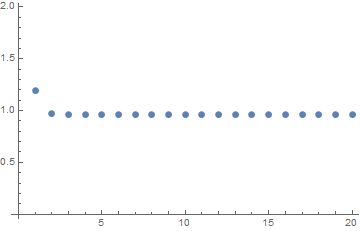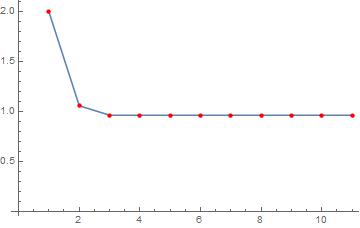To get the list that you want
f[x_] = x - .8 - .2* Sin[x] // Simplify;
NewtonsMethodList[f_, x0_, n : _Integer : 20] :=
NestList[# - f[#]/f'[#] &, x0, n]
(nml1 = NewtonsMethodList[f, Pi // N]) // InputForm
{3.141592653589793,
1.1902654422649652,
0.9692779750858744,
0.9643361576782574,
0.9643338876957006,
0.9643338876952227,
0.9643338876952227,
0.9643338876952227,
0.9643338876952227,
0.9643338876952227,
0.9643338876952227,
0.9643338876952227,
0.9643338876952227,
0.9643338876952227,
0.9643338876952227,
0.9643338876952227,
0.9643338876952227,
0.9643338876952227,
0.9643338876952227,
0.9643338876952227,
0.9643338876952227}
Note that the list continues past the point where the value stops changing. This can be avoided by using either NestWhileList or FixedPointList.
NewtonsMethodList2[f_, x0_, test_: UnsameQ] :=
NestWhileList[# - f[#]/f'[#] &, x0, test, 2]
(nml2 = NewtonsMethodList2[f, Pi // N]) // InputForm
{3.141592653589793,
1.1902654422649652,
0.9692779750858744,
0.9643361576782574,
0.9643338876957006,
0.9643338876952227,
0.9643338876952227}
nml2 == Take[nml1, Length[nml2]]
True
NewtonsMethodList3[f_, x0_] := FixedPointList[# - f[#]/f'[#] &, x0]
(nml3 = NewtonsMethodList3[f, Pi // N]) // InputForm
{3.141592653589793,
1.1902654422649652,
0.9692779750858744,
0.9643361576782574,
0.9643338876957006,
0.9643338876952227,
0.9643338876952227}
nml2 == nml3
True




(sinx)as you have written it should beSin[x]. The parens are unnecessary in this case, too. $\endgroup$